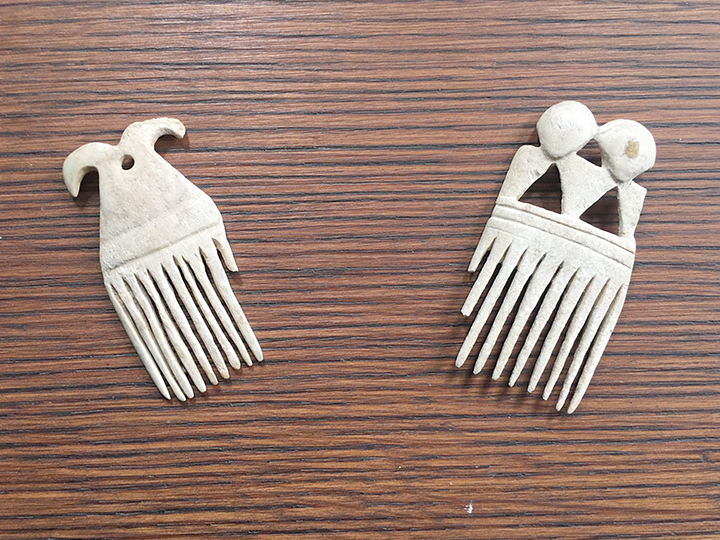By Matt Cumberledge
We’ve all grown accustomed to living in a post-industrial revolution world, where most of the items we buy and use have been mass produced, and true handcraftsmanship is something rare.
Throughout most of human history, making objects by hand was the only option available. Each piece was carefully made to be as functional as possible, and, more often than not, the maker added a little style to it as well.
Our artifacts this month are examples of such craftsmanship. These two combs, made from either bone or antler, were located on an archaeological dig in Franklin Township, Penna. by Frank B. Jones (a founding member of the Greene County Historical Society) in 1926.
The Monongahela Native American Culture site on which these items were found was thought to date to the late 16th or early 17th century due to the presence of trade copper found.
The Monongahela Culture existed from about a thousand years ago, until they seemingly disappeared from the archaeological record around 1635. It is thought that war and conflict between neighboring tribes, as well as disease, wiped them out; there also are viable theories that they may have relocated elsewhere.
The combs shown here exhibit stylistic influence from both the Iroquois from the north and the Susquehannock people from the east, and show a level of craftsmanship that can still be appreciated today. They are fairly small, measuring just a little over 2 inches from top to bottom, and the detail of the carving is almost unprecedented in similar works from the same period. Very few other comparable examples are known to exist.
The Native American collection at the Greene County Historical Society Museum is always on display, and has examples of tools, projectile points, pottery and other artifacts from every epoch of our local prehistory, some objects being over nine thousand years old.
Please keep an eye on the Greene County Historical Society Facebook page for our digital and in-person programming, and for more announcements on what is going on at the GCHS during the COVID-19 pandemic.
